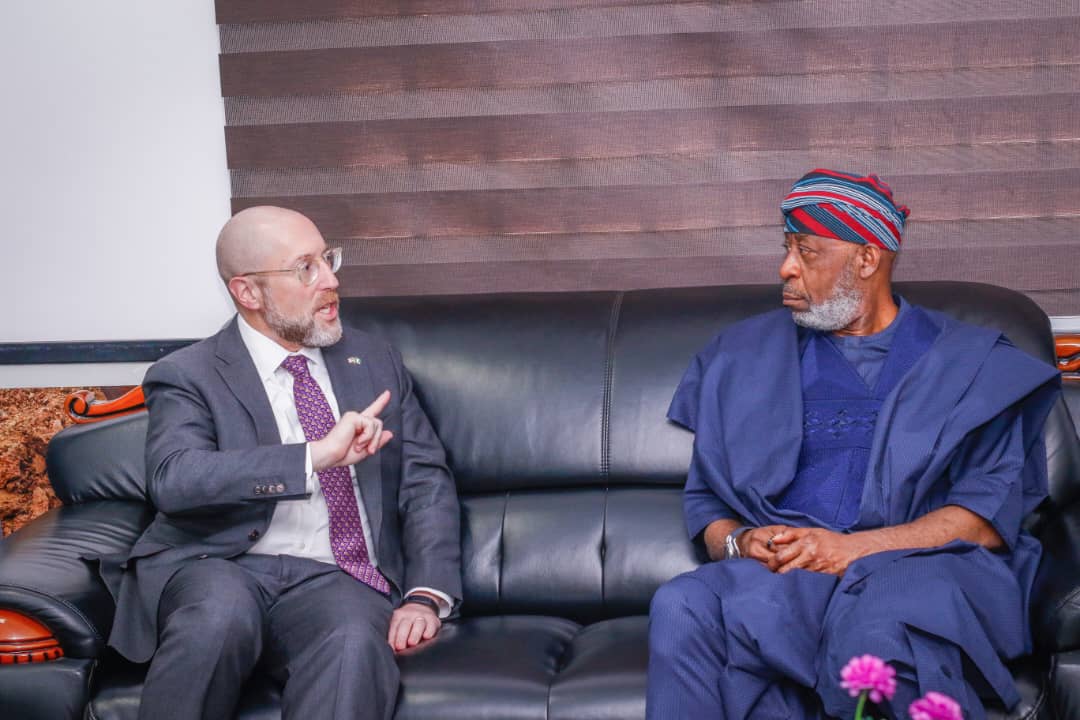553
By Tracy Moses
The European Union (EU) is intensifying engagement with Nigeria over access to its vast solid mineral reserves.
The renewed interest was confirmed during a courtesy visit in Abuja by the EU Ambassador to Nigeria and ECOWAS, on Tuesday, Mr Gautier Mignot, to Nigeria’s Minister of Solid Minerals Development, Dr Dele Alake.
The visit signals a growing EU urgency to forge resilient, diversified, and ethically sourced supply chains for critical minerals such as lithium, cobalt, and copper- minerals crucial to the global energy transition and Europe’s decarbonization goals.
Ambassador Mignot commended Nigeria’s recent policy reforms in the mining sector, indicating that the EU sees the West African nation as a strategic partner in addressing Europe’s raw material security.
“As Europe pivots away from fossil fuels, our economies will increasingly rely on stable and sustainable sources of critical minerals, and Nigeria holds a significant place in this future,” he said.
Responding, the Minister pledged the Federal Government’s readiness to partner with credible international investors under transparent, secure, and economically beneficial terms. With mineral reserves conservatively valued at over $700 billion, Nigeria aims to transform its mining sector into a cornerstone of national development and global relevance.
According to him, “This growing partnership between Nigeria and the EU also mirrors a larger geopolitical trend, as Western nations race to secure mineral resources amid rising competition from China and shifting global trade dynamics. The collaboration promises not only economic dividends for Nigeria but also a chance for the EU to anchor its green industrial strategy on a more diverse and secure foundation.”
To attract serious foreign players, Nigeria is offering incentives such as tax waivers, full profit repatriation, enhanced mine security, and a streamlined licensing regime. However, Dr Alake made it clear that local processing and value addition are non-negotiable for foreign mining firms, ensuring that the benefits of extraction remain within the country.
He further stressed Nigeria’s efforts to align with global best practices in mineral governance. Measures including satellite tracking, pre-shipment inspections, and tighter border controls are being implemented to prevent illicit exports and ensure traceability, an important consideration for EU importers concerned with ethical sourcing.
Ambassador Mignot further said “The EU is committed to supporting Nigeria in building a modern, transparent, and globally integrated mining sector. Our joint efforts will be a win for Europe’s energy goals and Nigeria’s economic transformation.”



